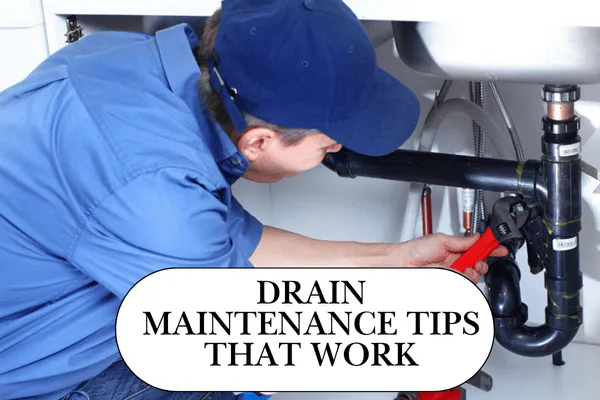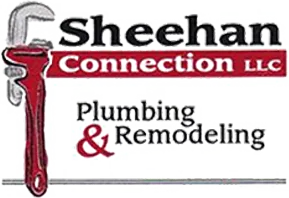
What You Need to Know About Drain Maintenance Tips That Work
Your home’s plumbing system works hard every day. Whether you’re washing dishes, taking a shower, or doing laundry, your drains are constantly moving water and waste away from your living space. But over time, buildup inside your pipes can lead to clogs and costly repairs.
The good news is that most of these problems are preventable. With just a few simple habits, you can protect your drains and keep your plumbing system flowing the way it should. These drain maintenance tips are easy to follow, don’t take much time, and can save you a lot of stress.
Understand How Your Home Drainage System Works

When you understand how your drainage system moves wastewater away from your home, it becomes easier to maintain it properly. Most homes rely on gravity and a network of connected pipes that lead to either a municipal sewer or a septic tank. Each fixture, like a sink or toilet, has a trap that holds water to block sewer gases from entering your home. If these traps dry out or get blocked, you may experience odors or backups. Keeping traps filled and pipes clear helps protect the entire system.
Don’t Forget About Outdoor Drains and Gutters
Drain maintenance is not just about indoor plumbing. If your home has basement floor drains, yard drains, or roof gutters, those need care too. Leaves, dirt, and other debris can block these outdoor systems and cause water to pool around your foundation. This can lead to water damage inside your home. Check and clean outdoor drains regularly, especially after storms or during the fall when leaves are heavy.
If you notice standing water near your foundation, slow drainage after rain, or overflowing gutters, those can be signs of a deeper issue that needs attention. If you are unsure what to do or don’t have the right tools, call a drain repair professional to inspect the problem and safely restore proper drainage. A professional can identify hidden issues, prevent further water damage, and make sure your system works efficiently year-round.
Watch What Goes Into Your Drains

Most clogs happen because of what gets washed down the drain. In the kitchen, avoid pouring grease, cooking oil, coffee grounds, and food scraps into the kitchen sink. These substances can harden and stick to pipe walls, creating a buildup over time. In the bathroom, only flush toilet paper. Items like wipes, cotton balls, and feminine products do not break down easily and can clog your sewer line. Even your garbage disposal should only handle small scraps and should always be used with cold water to help move waste through the pipes.
If you're seeing signs like water backing up, it’s a strong indicator your system may already be affected.
Install Simple Tools to Block Clogs
Drain strainers and hair catchers are simple and effective tools to prevent clogs. Use mesh screens in kitchen sinks to catch food particles. Place hair catchers in bathtubs and showers to trap hair and soap scum before they go down the drain. Clean these screens regularly to keep water flowing. In the laundry area, a lint trap on the washing machine’s drain hose can stop fibers from entering your plumbing and causing buildup.
Keep Drains Clean With Natural Solutions
Cleaning your drains regularly can help prevent odor and blockages. You can do this safely without using harsh chemicals. Once a week, pour hot water down the drain to loosen buildup. Every month, try this method:
Pour half a cup of baking soda into the drain.
Add half a cup of white vinegar.
Let it sit for 15 minutes.
Rinse with hot water to clear debris.
You can also use an enzyme-based drain cleaner once a month to help break down organic matter. These cleaners are gentle, safe for your pipes and septic system, and work well for light maintenance, but if you're dealing with persistent odors, slow drainage, or recurring clogs, it's time to call a licensed plumbing professional to assess the problem and safely clear your lines.
Say No to Chemical Drain Cleaners
Chemical drain cleaners might seem like a quick fix, but they can damage your plumbing. These products often contain acids that can corrode your pipes, especially if used repeatedly. They may also leave behind residue that traps more debris and leads to future clogs. If a clog does not clear with safe methods, it is best to call a plumbing professional instead of risking further damage.
Track Drain Performance With a Simple Maintenance Log

Keeping a maintenance log can help you stay ahead of problems. Note when you clean drains, flush them with natural solutions, or notice signs of slow drainage. This makes it easier to spot recurring issues and helps your plumber understand the full picture if a repair is needed. A simple checklist or notes on your phone can be enough to keep things organized.
Spot Early Signs of Drain Trouble
Catching a problem early can save you time and money. Look out for these warning signs:
Water draining slowly in sinks, tubs, or showers
Gurgling sounds from your pipes or toilet
Bad smells coming from any drain
Water backing up in unexpected places
Issues that may lead to a major repair later
If you notice any of these signs, take action before the issue gets worse. A small fix now can prevent a major repair later.
Protect Your Drains Before Problems Start
The best way to avoid clogs is to stay proactive. With a few small changes to your daily habits and regular attention to your drains, you can keep your plumbing system running smoothly. Preventative care is simpler and more affordable than dealing with an emergency.
If your drains are slow, smelly, or overdue for a cleaning, don't wait for a major problem. Contact our plumbing professionals today or call (856) 627-4495 to schedule your full drain inspection or maintenance service.




